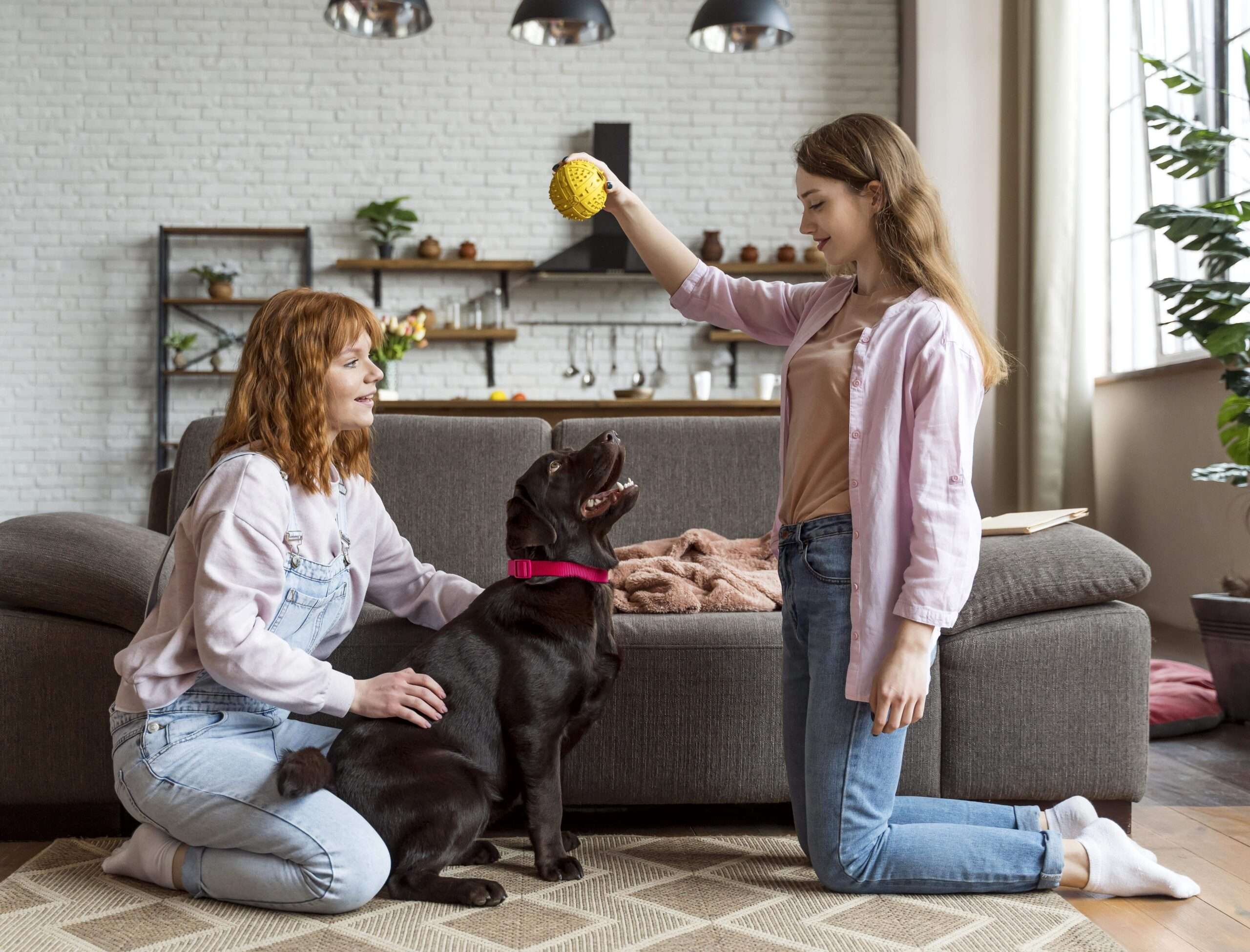How Do You Take Good Care of Your Pets [No:1 Comprehensive Guide]

Get advice from professionals on how to take good care of your pets for their general wellbeing. From nutrition to grooming, our guide covers essential steps for responsible pet ownership. Discover the best practices on how to care for your furry companions today.
Nutrition and Diet
Keeping excellent care of pets entails prioritising their nutritional requirements. To make informed decisions regarding your pet’s diet, choose high-quality, well-balanced pet food. Consider their age, size, and dietary needs. Consulting a veterinarian is advisable to receive guidance in crafting a diet suitable for your pet’s individual requirements. Regulating portion sizes also plays a crucial role in averting overfeeding, aiding in the maintenance of a healthy weight, and ultimately supporting their energy and lifespan.
Regular Veterinary Care
Consistent veterinary care is a cornerstone of responsible pet ownership. Make it a priority to schedule regular check-ups for your furry friend. These routine visits allow to take good care of your pets and early detection of any potential issues. Promptly addressing health concerns is essential to maintain your pet’s comfort and quality of life. By staying on top of vaccinations and preventive treatments recommended by your vet, you provide a strong defense against common diseases and troublesome parasites. Your commitment to their well-being not only ensures their physical health but also nurtures the bond you share with your cherished companion.
Exercise and Playtime
Engaging your pet in regular exercise and playtime activities is essential for their overall happiness and well-being. Physical activity not only maintains their physical health but also helps to prevent obesity and related health issues. Dedicate time each day to interactive play, such as fetch, tug-of-war, or puzzle toys. These activities stimulate their minds and alleviate boredom, reducing the likelihood of destructive behaviors.
Outdoor walks or supervised play in a secure environment allow your pet to explore, socialize, and expend excess energy. Cats can benefit from climbing structures and interactive toys that mimic hunting behaviors.
Hygiene and Grooming
Maintaining proper hygiene and grooming practices is essential to take good care of your pets and comfort. Regular grooming not only keeps their appearance tidy but also prevents various health issues.
Brushing your pet’s coat helps distribute natural oils, preventing matting and promoting a healthy shine. Trimming their nails prevents overgrowth that can lead to discomfort or injury. Regular ear cleaning reduces the risk of infections, and dental care ensures strong teeth and fresh breath.
Safe Environment Take Good Care of Your Pets
- Identify potential hazards, such as toxic plants, small objects, and electrical cords. Keep these out of your pet’s reach to prevent ingestion or accidents.
- Set up barriers or gates to restrict access to areas that might be unsafe, like kitchens or staircases. Provide designated spaces where your pet can rest and play comfortably.
- Store cleaning supplies, medications, and chemicals in cabinets that are inaccessible to your pet. This prevents accidental poisoning.
- If your pet spends time outdoors, ensure your yard or balcony is securely fenced and free of escape routes. Check for gaps or openings that they could squeeze through.
- If you have multiple pets, monitor their interactions to prevent aggressive behavior or potential injuries.
Socialization
- Introduce your pet to various people, animals, and environments during their critical socialization period, usually when they’re young. This helps them become comfortable and adaptable.
- Make these encounters positive and rewarding through treats, praise, and play. This reinforces positive associations with new experiences.
- For dogs, consider supervised playdates or visits to dog parks to interact with other dogs. Monitor interactions to ensure they’re positive.
- Enroll in training classes to teach obedience commands and improve your pet’s behavior around other animals and people.
Training and Enrichment:
The behaviour and mental health of your pet are greatly shaped by training and enrichment activities. By engaging in positive training practices and providing stimulating experiences, you can foster a harmonious and fulfilling relationship with your furry friend.
Training involves teaching your pet obedience commands, manners, and desired behaviors. Utilize positive reinforcement techniques such as treats, praise, and rewards to encourage learning. Consistency and patience are key; focus on rewarding good behavior and redirecting undesirable actions.
Identification and Safety
Safeguarding your pet’s identification and overall safety is paramount in ensuring their security and your peace of mind. To provide optimal protection, implement a combination of measures that offer multiple layers of security.
Begin by attaching a durable identification tag to your pet’s collar. This tag should feature your pet’s name, your contact information, and any pertinent medical details. This simple step significantly increases the likelihood of a swift and successful reunion if your pet happens to wander off or become lost.
Proper Housing
Creating an appropriate living space for your pet is vital to their comfort and overall health. The housing you provide should cater to their specific needs and promote their well-being.
For dogs, ensure that their living area offers enough room for movement and stretching. Whether indoors or outdoors, provide shelter from harsh weather conditions, direct sunlight, and extreme temperatures. A comfortable bed or bedding material should be available for them to rest and sleep on.
Comfort and Rest
Creating a comfortable and inviting space for your pet to rest is essential for their overall well-being. Just as humans need a peaceful retreat to recharge, your furry friend also requires a cozy haven to relax and rejuvenate.
Ensure your pet has a designated resting area that offers both comfort and security. Provide a soft and supportive bed that suits their size and sleeping preferences. Cats may appreciate elevated perches or hideaways, while dogs may prefer cushioned mats or beds.
Love and Attention
Your pet’s mental wellness is equally as crucial as their physical wellbeing. By showing your furry friend true affection and care, you may strengthen your relationship with them and improve both of your lives.
Spend quality time with your pet daily. Engage in activities they enjoy, such as playtime, walks, or simply cuddling. This engagement not only deepens your bond but also guards against feelings of boredom and loneliness.
Conclusion
A multidimensional approach that fulfils your pet’s physical, psychological, and emotional needs is required to improve their overall well-being. By adhering to these fundamental care instructions, you pave the way for a life full of joy, enjoyment, and a solid link between you and your animal companion.
Each element of their general quality of life, from giving a healthy diet and frequent veterinarian treatment to partaking in exercise, grooming, and socialisation. A safe environment, effective training, identification measures, suitable housing, and a comfortable resting place all play pivotal roles in ensuring their safety, comfort, and contentment.
